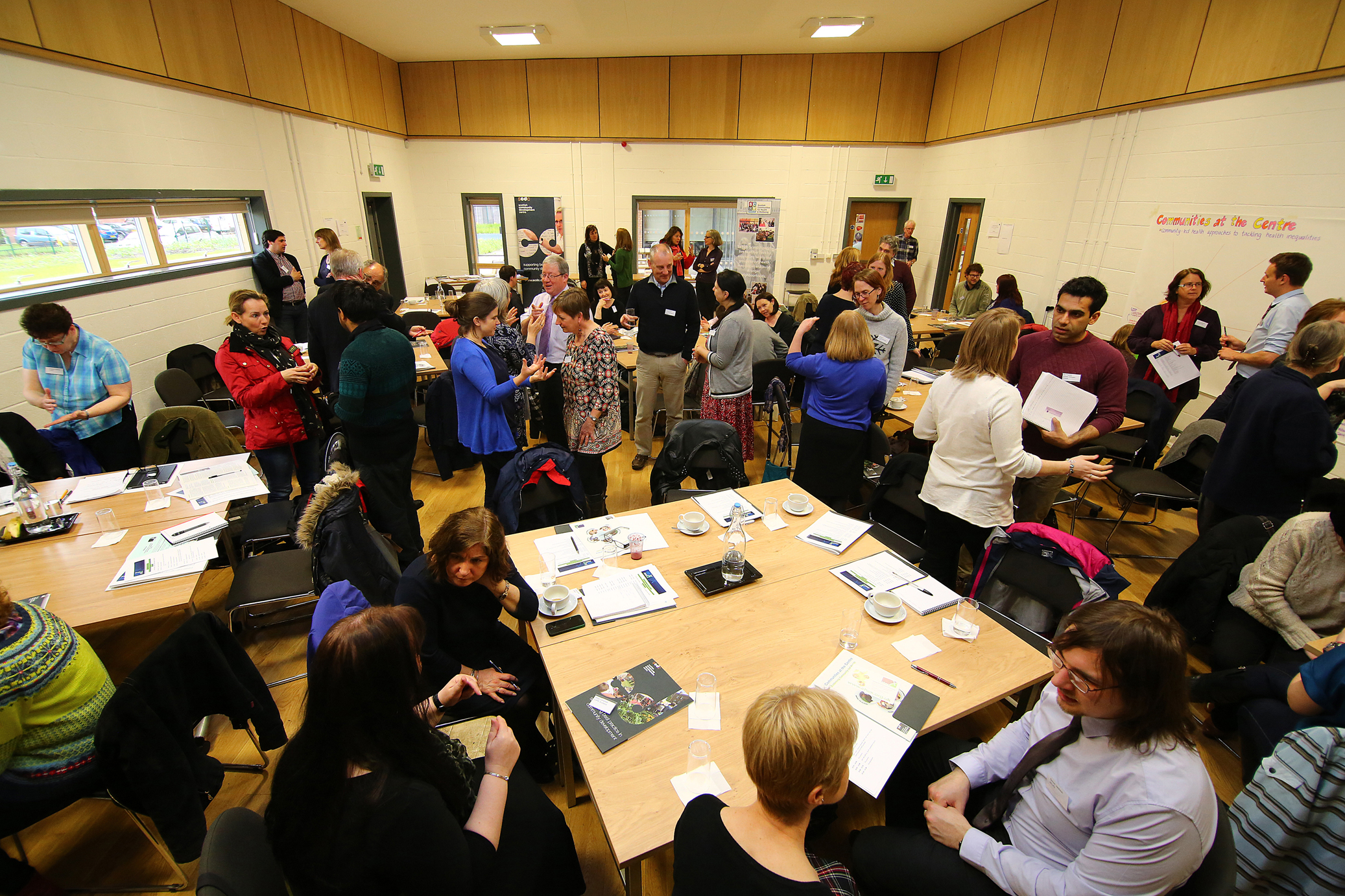Community wealth building
/A summary of SCDC’s response to the Scottish Government’s community wealth building consultation
Community wealth building is focused on growing the influence communities have on the economy and ensuring communities receive more of the benefits from the wealth they help to generate. The Scottish Government has adopted a community wealth building approach, and sees it as a key tool in supporting a just transition to net zero and reducing child poverty.
This is a summary of SCDC’s response to the Scottish Government’s consultation on community wealth building which ran in 2023.
Our key points:
We support the general principle of community wealth building (CWB), particularly if it is genuinely supportive of community empowerment and focused on tackling inequality.
Big political decisions on tax and redistribution are required to help make policies such as community wealth building ‘transformational’.
Community-led organisations must be supported to have a key role in community wealth building. These organisations already generate positive outcomes for their communities, including building community wealth, and resources, support and enabling legislation should be targeted at growing their contribution.
Capacity building is essential to ensure that people in disadvantaged and marginalised communities are able to take advantage of opportunities arising from community wealth building.
More detail on these key points
We support the general principle of community wealth building (CWB), particularly if it is genuinely supportive of community empowerment and focused on tackling inequality.
Community wealth building aligns with other approaches and policy ideas we support, such as community empowerment and the notion of a wellbeing economy. We therefore support the general direction of this policy and would like to help try and shape it to be effective at empowering communities and reducing inequality in Scotland.
We also support the proposal contained within the Scottish Community Alliance’s response to this consultation, that a Community Wealth Building Commission be established, similar to the Scottish Land Commission, to ensure that community wealth building remains firmly on the Scottish public policy agenda
In terms of linking to wider legislation, we see important connections to the National Planning Framework, the Community Empowerment Act and the local governance review. The latter should be used as an opportunity to devolve decision-making and increase community-involvement.
We also agree with the Scottish Community Alliance’s call for greater decentralisation of decision making. The Local Governance Review is an opportunity to fundamentally reshape how local democracy works, shifting power to communities. We believe the scope of the review will include whether to devolve decisions about investment, procurement, public services, tax and spend to a local level while increasing community influence and involvement in these decisions – all of which is at the heart of community wealth building.
Without this, it is hard to see how large public bodies and public services, working at scale, can change their practices sufficiently enough to make community wealth building work, including in the area of procurement
Big political decisions on tax and redistribution are required to help make policies such as community wealth building ‘transformational’.
Inequality, including health inequality, is now increasing again, a trend which Covid-19 and the cost-of-living crisis have exacerbated but which is routed in government policy – mainly the UK Government’s ‘austerity’ policy but also missed opportunities to use new tax raising powers in Scotland.
In this environment, public service reform, democratic renewal and community empowerment risk contributing to rising inequality, with stretched resources being diverted towards high-capacity, affluent and active communities. Therefore, big political decisions about redistribution are required, with significant resources being invested in the infrastructure to make policies such as community wealth building ‘transformational’.
The Scottish Government should do the following, either as part of community wealth building or in addition to it:
Implement a national living wage
Put in place progressive individual and corporate taxation (wherever possible given many tax powers are reserved)
Develop stronger legislation, or enforce existing legislation (such as the Fairer Scotland Duty) to make strategic planning focus on eradicating inequality.
Community-led organisations must be supported to have a key role in community wealth building. These organisations already generate positive outcomes for their communities, including building community wealth, and resources, support and enabling legislation should be targeted at growing their contribution.
For community wealth building to have the desired impact in terms of local sustainability and social wellbeing, it needs to be bottom-up, or community-led. On the one hand, this means that people in communities, including community organisations that work with them, need to be meaningfully involved in how community wealth building is planned for, and implemented, at a local level. The guidance therefore needs to strongly emphasise the role of communities in shaping community wealth building.
In relation to the CWB ‘spending pillar’ we would like to see much greater emphasis on the role the community sector can play in contributing to a local, sustainable and ethical economy. We also believe the duty should require public bodies to procure solely on the basis of achieving greater social and environmental wellbeing, and not on considerations of ‘economic growth’.
The community sector can contribute to the spending pillar in the following ways:
Social enterprise – the model of social enterprise we advocate for is not-for-profit and community-led. SCDC/CHEX, along with Social Enterprise Scotland and Scottish Communities for Health and Wellbeing, has been supporting an innovative model of distributing small grants to community organisations to buy in activities provided by social enterprises which promote mental health. https://communitywellbeingexchange.scot/ (A case study of this has been provided in Scottish Community Alliance’s response to this consultation)
Social prescribing, particularly if resources are invested in the community organisations which provide ‘prescribed’ services. We are also interested in models of social prescribing in which community and voluntary organisations have a pivotal role in supporting individuals from the start, such as in the SPRING model https://www.springsp.org/.
Community shares and co-operatives.
Community food growing – links should be made with Part 8 of the Community Empowerment (Scotland) Act on allotments and community growing - another under-utilised piece of legislation.
Community cafes and catering More generally, community organisations provide a whole range of services and improvements to facilities for the benefit of their communities. A diverse range of examples is included in our full response.
Sometimes examples such as these are provided through service level agreements or on some other kind of contractual basis, but many are not, and community and voluntary organisations are left struggling to search for funding. Their role in helping to provide vital public services should be recognised properly and resourced appropriately. The voluntary and community sector should not be seen as a way of cutting costs – the issue of pay and conditions in this sector needs to be addressed as part of community wealth building
We also believe it is particularly important to ensure the involvement of community organisations in the implementation of the duty.
The reach, understanding and trust they have in their communities enables them to respond to local needs and priorities. They are best placed to know what interventions are required now, and in the future, and have a first-hand understanding of how different policies and decisions will affect the people they work with.
To ensure this, the Scottish Government should work with national third sector intermediaries, equality organisations, local community development teams and local community organisations. The National Standards for Community Engagement should be adhered to throughout so that engagement is early, collaborative, meaningful and includes all groups likely to be affected.
Capacity building is essential to ensure that people in disadvantaged and marginalised communities are able to take advantage of opportunities arising from community wealth building.
A key ingredient that is missing from public service reform and community empowerment in Scotland is support or capacity building, both for communities and staff with public bodies. SCDC works at the interface between communities and public bodies and provides a level of much-needed support for fields and approaches ranging from community engagement to community-led action planning.
Across all our work over the past 10-15 years we have heard time and time again that the enabling legislation is heading in the right direction for community empowerment but that, at the time when it is needed most, the workforce in terms of community development practitioners (whether in the public, voluntary or independent sectors) has been thinned out to such an extent that it is extremely difficult to provide effective support for disadvantaged and marginalised communities to benefit from the legislation.
Therefore, we would like to see actions aimed at increasing capacity building and support for disadvantaged and marginalised communities to be in a position to benefit from these ambitions. If more resources were made available for this, then it is not hard to envisage legislation requiring public bodies, in collaboration with voluntary and community sector partners, to work with communities to help them be in a position to develop their own community-led wealth building activity.
Some practical actions we recommend as part of community wealth building legislation are:
Increased funding aimed directly at growing capacity of communities and public sector so that more communities can be supported to participate in community wealth building. Funding for community and voluntary organisations should be for at least 3 years.
Within legislation, more emphasis should be placed on capacity building of public sector bodies to understand and support community-led approaches, participation and co-production. This includes pre-existing legislation such as the Community Empowerment (Scotland) Act as well as new community wealth building legislation.
Ensuring that the application criteria for all Scottish Government funding criteria for community wealth building projects includes a requirement for projects to be designed and delivered in partnership with local communities, including community and voluntary sector organisations, and also to have a clear focus on eradicating inequality
More on community wealth building
Our full response to the Scottish Government’s consultation on community wealth building. Click to download (pdf)
The Scottish Government’s webpage on community wealth building. Visit website
Information on community wealth building on the Communities Channel Scotland website. Visit website





















